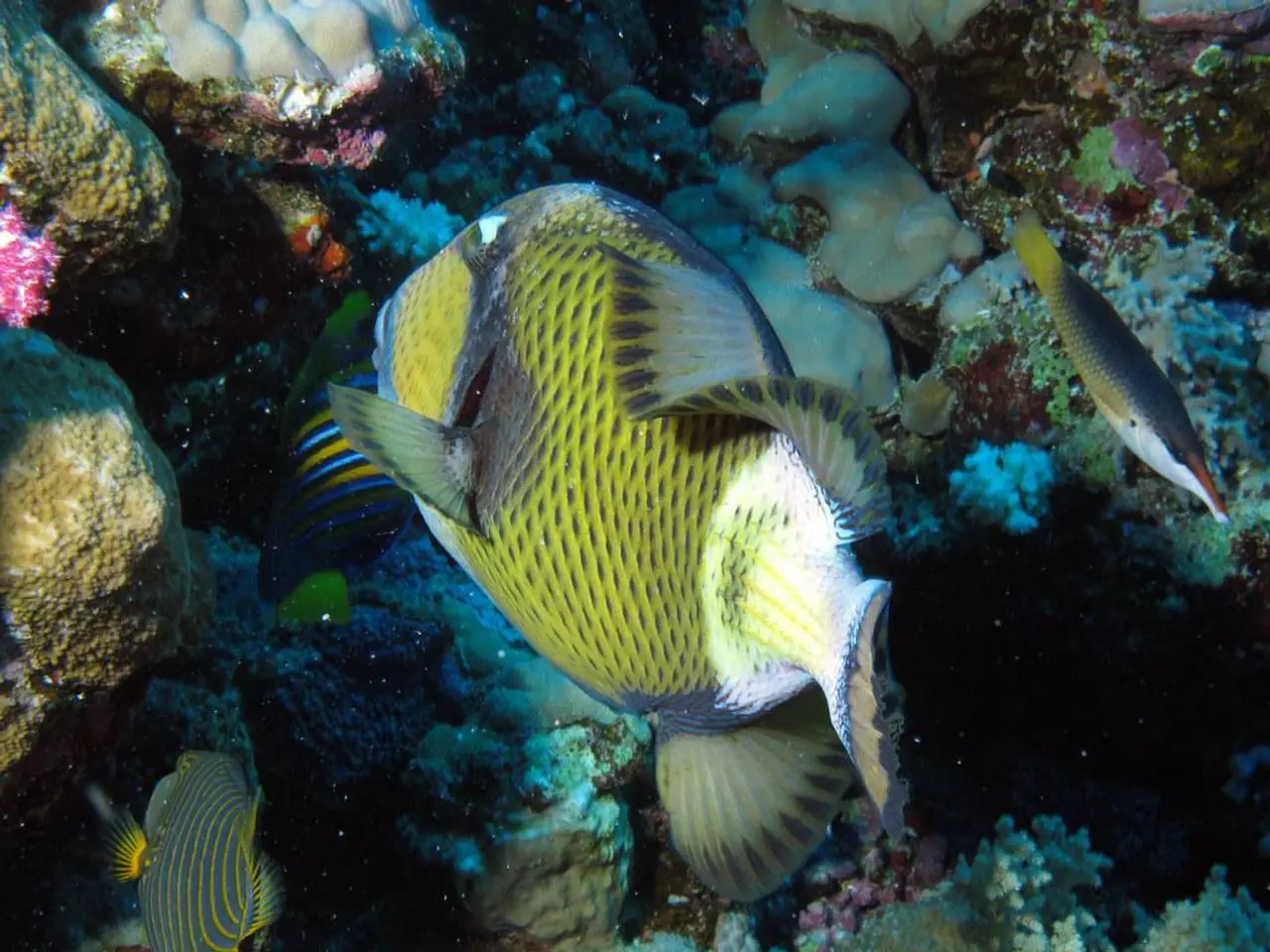Expensive sea moss takes over health market: Is this pricey seaweed truly a superfood?
Sea moss, scientifically known as Chondrus crispus, has been gaining popularity on social media platforms, with celebrities and Tiktokers promoting it for various health benefits. This seaweed, rich in antioxidants and polyphenols, is believed to support gut health due to its fiber and prebiotic content. However, it's essential to approach its consumption with caution.
Sea moss contains iodine, an essential mineral for thyroid health. While this may seem beneficial, most people in the U.S. already get enough iodine through their diet, and adding more iodine, such as from sea moss, may not be necessary. Overconsumption of iodine from supplements can lead to over-treatment, as advised by Terry Davies, co-director of The Thyroid Center, Mount Sinai Union Square.
Pregnant and breastfeeding individuals, people with thyroid conditions, those prone to heavy metal toxicity, individuals sensitive to carrageenan, and anyone taking blood thinners should be mindful or avoid using sea moss. The Food and Drug Administration (FDA) doesn't regulate supplements like pharmaceutical drugs, and manufacturers can put almost anything they want on the label, which may not resemble exactly what you're consuming.
A study set to publish in the Journal of Agriculture and Food Research in June 2025 suggests that consuming seaweed products, including sea moss, can cause an accumulation of heavy metals in the body that can provoke adverse health issues, including kidney dysfunction, neurological damage, an increased risk of cancer, and affect cognitive function. The lack of long-term studies and the rarity of iodine deficiency in the U.S. make it difficult to recommend sea moss as an essential dietary addition.
Despite these concerns, some experts suggest returning to the basics, such as eating whole foods like vegetables and fruits, instead of relying on sea moss as a dietary addition. Much of the sea moss used in supplements is ultra-processed and stripped of nutrients, including soluble fiber, which may disrupt the gut microbiome.
On the other hand, sea moss extracts have anticoagulant properties that may have the potential to stop blood clots, as shown in a review published in Marine Drugs in 2024. Extracts from Chondrus crispus also have antimicrobial properties and antioxidants that help with oxidative stress.
The global sea moss market is expected to grow to $2.60 billion by 2030, according to Virtue Market Research. As the trend continues, it's crucial for consumers to be aware of the potential benefits and risks associated with sea moss consumption and to consult with healthcare professionals before incorporating it into their diet.
The identity of the researcher who spoke about the potential health-promoting properties of sea roots (Meerwurzeln) is not explicitly found in the provided search results. No direct mention of such a researcher or studies on sea roots is presented in the available sources. However, the potential benefits and risks of sea moss continue to be a topic of ongoing research and discussion in the scientific community.
Read also:
- visionary women of WearCheck spearheading technological advancements and catalyzing transformations
- Recognition of Exceptional Patient Care: Top Staff Honored by Medical Center Board
- A continuous command instructing an entity to halts all actions, repeated numerous times.
- Oxidative Stress in Sperm Abnormalities: Impact of Reactive Oxygen Species (ROS) on Sperm Harm








